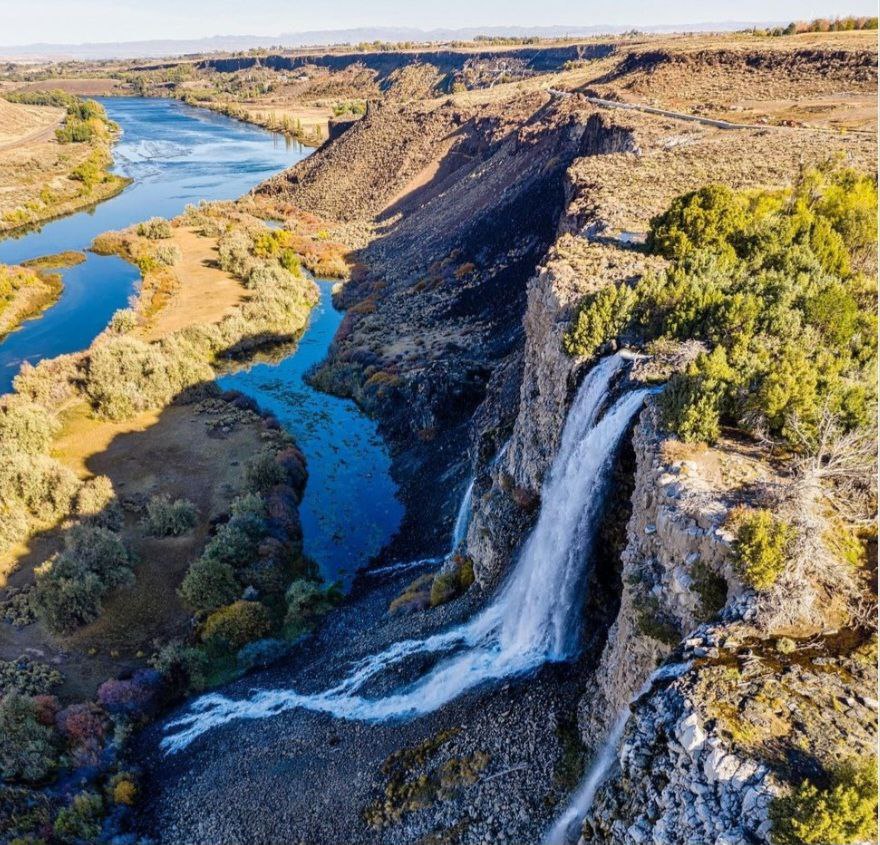Idaho
Wendell and Castleford volleyball battle to five sets; Monday Idaho prep volleyball scores
/cloudfront-us-east-1.images.arcpublishing.com/gray/7ZEBRUYGCRHMFKSMEQ5XIZ6LX4.bmp)
WENDELL, Idaho (KMVT/KSVT) — The Wendell Trojans (4-4) hosted the Castleford Wolves (3-4) in a non-conference matchup Monday.
Both teams were looking for a big win to kickstart their seasons.
In a back-and-forth matchup, the Trojans came away with a 3-2 victory (20-25, 26-24, 22-25, 25-18,15-12).
Wendell will host Valley on Wednesday, while Castleford will travel to Hansen on Thursday.
Copyright 2023 KMVT. All rights reserved.

Idaho
New revelations, new wrinkles in Idaho Supreme Court hearing on Phoenix sale • Idaho Capital Sun

This story was originally posted on IdahoEdNews.org on June 13, 2024.
(UPDATED, 3:56 p.m., with comment from Trudy Fouser, the State Board’s lead attorney.)
An Idaho Supreme Court justice Thursday floated a new and confounding question about the proposed University of Phoenix acquisition: Did the State Board of Education pay $1.5 million for consulting before greenlighting the deal?
State Board officials were quick to say they never paid for due diligence work, which would have been covered through tax dollars.
The due diligence question came up during oral arguments, as the Supreme Court took up an open meetings lawsuit against the State Board. Attorney General Raúl Labrador has argued that the board broke state law when it held three closed-door meetings to discuss the University of Idaho’s $685 million plan to purchase Phoenix. The State Board gave the purchase the go-ahead in an open meeting on May 18, 2023.
Labrador’s lawsuit — rejected in an Ada County district court — has nonetheless thrown a monkey wrench into the bid for Phoenix, a giant for-profit online university serving some 85,000 students nationally. And if the Supreme Court sides with Labrador and against the State Board such a decision would further imperil the deal.
The Supreme Court took the case under advisement after a 70-minute hearing. It’s unclear when the court will rule.
Did the Idaho State Board of Education pay for due diligence?
It sounded that way, at least in Thursday’s hearing.
During a line of questions, Supreme Court Justice Gregory Moeller clearly suggested that the State Board had spent $1.5 million on due diligence. And he said the spending indicated that the Phoenix talks had progressed beyond the “preliminary negotiations” that can be held in a closed meeting.
Moeller’s questions also seemed to draw a distinction between the State Board’s due diligence and the U of I’s consulting contracts, which have been a matter of public record for months. The U of I has spent roughly $11 million on Phoenix-related consulting — and as Idaho Education News reported in February, $7.3 million of this work went to U of I President C. Scott Green’s former employer, Hogan Lovells, an international law firm.
So did the State Board spend $1.5 million?
During Thursday’s hearing, the State Board’s outside attorney did not dispute Moeller’s claim, and said the magnitude of the Phoenix deal justified due diligence.
“(It’s) not an unreasonable action,” Stephen Adams said.
When State Board spokesman Mike Keckler was reached for comment Thursday morning, he questioned Moeller’s version of the facts.
“Neither the board nor the board office spent funding on due diligence,” Keckler said in an email. “Given that we are in a board meeting today we weren’t able to listen to this morning’s oral arguments, so we can’t comment any further on Justice Moeller’s line of questions.”
The board has been meeting in Pocatello since Tuesday for a previously scheduled meeting running through today. No board member or State Board staff member attended Thursday’s Supreme Court hearing.
The lead attorney representing the State Board, which operates as the U of I’s governing board of regents, corroborated Keckler’s account. In an email Thursday afternoon, Trudy Fouser said the board never paid for consulting or due diligence.
Familiar — and less familiar — legal arguments
Thursday’s legal arguments revolved around two snippets in the open meetings law, pertaining to the negotiations process and competition.
The State Board justified its closed meetings under a little-used piece of the law, covering “preliminary negotiations … in which the governing body is in competition with governing bodies in other states or nations.”
Negotiations. Chief Justice Richard Bevan seemed to set the tone for Thursday’s hearing with the court’s first question to Joshua Turner, Labrador’s constitutional litigation and policy chief: “When do preliminary negotiations cease and final negotiations begin?”
For much of the hearing, the justices grilled Turner and Adams about this question. Not surprisingly, the two attorneys saw the issue differently.
Turner argued that the preliminary talks end — and the public debate must begin — when there is an offer on the table. And Turner suggested that this must have happened sometime during the board closed meetings, in March, April and May 2023.
Adams said preliminary negotiations don’t end with an offer; they end when the parties begin work on a contract. And he said the preliminary phase ended with the State Board’s open meeting on May 18, 2023; that’s when the board agreed to pursue a contract, setting a $685 million purchase price.
Competition. This was the centerpiece in the Ada County trial in January, when District Judge Jason Scott ruled in the State Board’s favor. Scott said board members had reason to believe the U of I was vying against other public suitors, such as the University of Arkansas. (However, Arkansas’ board of trustees voted down a Phoenix purchase in April 2023, almost a month before the State Board endorsed a U of I-Phoenix affiliation.)
But this turned out to be a secondary issue Thursday, as the court and the competing attorneys spent relatively little time discussing competition.
Adams defended State Board members, saying they worked diligently to make sure their closed meetings were legal. And he said everything the board heard in private confirmed the U of I was in the middle of a competitive bidding process.
Meanwhile, Turner took a jab at Scott. By focusing on whether board members had reason to believe the U of I faced competition — rather than proof of actual competition — Scott used a subjective measure. As a result, Turner said, Labrador’s team had no choice but to spend hours deposing individual board members for their read on the market for Phoenix.
Transparency vs. competitive advantage
The State Board’s May 2023 vote blindsided Idahoans who knew nothing about a potential Phoenix purchase, Turner said. And that preempted the process the open meetings law is designed to protect. “The public wants to be able to enter the conversation and have a seat at the table.”
In response, Adams said the board was not trying to shut out the public. Instead, he said, the board was working “to get the best deal possible for the people of the state of Idaho.”
On Thursday, the court publicly wrestled with this question of balance.
Justice Colleen Zahn said the Legislature made its objectives known, with a law designed to allow the government to negotiate behind closed doors. “It’s clearly got to be to provide the state a competitive advantage.”
Moeller acknowledged that closed-door negotiations are a great way to run a private business. “The debate I’m having internally is, is this a good way to run a state?”
The case, in broader context
The case before the Supreme Court is legally narrow: an open meetings dispute.
Its implications run deeper.
Labrador’s lawsuit, filed nearly a year ago, has prevented the U of I from financing a Phoenix purchase. The Supreme Court appeal has also kept bonding on hold.
As long as the lawsuit is active — and on Thursday, justices floated the possibility of kicking the case back to district court for another hearing — the Phoenix purchase remains in limbo.
And as EdNews first reported in May, Phoenix’s owner, Apollo Global Management, has said it now wants to talk with other prospective buyers. The U of I could receive “breakup fees” from Apollo if its Phoenix purchase falls through.
More reading: Click here for more in-depth, exclusive Phoenix coverage from Idaho Education News.
Idaho
Idaho State Department of Education increases minimum school days

NAMPA, Idaho — On Wednesday the State Board of Education made a change to instructional day minimums in response to the increasing number of 4-day schools.
- The minimum number of instructional days in a school year has been increased to 152.
- The Department found that schools on a five-day calendar averaged 172 instructional days. That’s 26 more days than the four-day calendar average of 146 instructional days.
- At the end of this school year the Nampa School District became the next, and largest, school district in Idaho to make the switch to a four-day school week.
RELATED| Impacts for the YMCA and Nampa Police Department as Nampa Schools move to four-day school weeks
(The following is a transcription of the full broadcast story.)
At the end of this school year the Nampa School District became the next, and largest, school district in Idaho to make the switch to a four-day school week. On Wednesday the State Board of Education made a change to instructional day minimums in response to the increasing number of 4-day schools.
State Superintendent Debbie Critchfield and the Department of Ed team worked with education stakeholders to adjust the minimum number of instructional days in a school year to 152. The Department found that schools on a five-day calendar averaged 172 instructional days — 26 more days than the four-day calendar average of 146 instructional days. During the most recent legislative session, two bills were signed into law requiring schools to meet a minimum instructional hours to be eligible to receive state funding.
Back in January, Superintendent Critchfield outlined her opinions on four-day school weeks in an open letter.
Critchfield saying she “doesn’t support 4-day weeks if they are being considered as a money-saving alternative… little to no money would be saved in the long run.”
In that letter she also urged districts to do what’s best for students rather than what is desired by the adult workforce.
I’ve been following Nampa’s schedule shifts this year for you and I’ve also spoken with the Vallivue School District that spans across Nampa and Caldwell and, while they explored a four-day week in 2020, they decided it was not in their students’ best interest and have no plans to explore it in the future.
Idaho
Idaho Water Wars

Idaho Department of Water Resources Director Mathew Weaver issued a final curtailment order today, finding that six groundwater districts were deficient in complying with their existing, approved mitigation plans to address an injury volume of 74,100 acre-feet to senior water users.
The order indicates that water rights junior to March 31, 1954, in those six districts are now subject to curtailment.
The six groundwater districts found to be in noncompliance with an approved mitigation plan are:
• Bingham Ground Water District
• Bonneville-Jefferson Ground Water District
• Jefferson-Clark Ground Water District
• Magic Valley Ground Water District
• Carey Valley Ground Water District
• North Snake Ground Water District
“It is surprising to us that six groundwater districts would choose not to live by the terms of either of their approved mitigation plans and subject their members to curtailment,” said Brian Patton, Deputy Director of IDWR.
Under Idaho water law, water users with senior water rights have priority over water users with junior rights. On the Eastern Snake River Plain, IDWR administers both surface and groundwater resources together as one whole, or “conjunctively.” In general, groundwater rights are junior to surface water rights.
The 74,100 acre-foot shortfall is based on a number of factors including mountain snowpack, reservoir content, irrigation need, and aquifer conditions.
In this video, in response to the possibility of water curtailment, Idaho farmers say, “We’re all going to fail.”
IDHW released an update on June 6:
“On Wednesday, June 5, two Magic Valley-area ground water districts – North Snake and Magic Valley – filed notice with the Idaho Department of Water Resources (Department) demonstrating that they are now operating under an approved mitigation plan, officials said Thursday.
In response to North Snake’s and Magic Valley’s filings, the Surface Water Coalition delivered a notice of non-objection to the Department supporting the ground water district’s filings conditioned on adherence to their approved 2016 mitigation plan for the remainder of the irrigation season. As a result, approximately 2,400 junior ground water rights owned by members of those two districts will be protected from curtailment under the Department’s May 30 curtailment order.”
All IDWR news releases can be found here.
From this informative article, Idaho Senator Glenneda Zuiderveld said,
“[Idaho ground water users] should have considered all factors before planting their crops, opting for those that require less water. As junior rights holders, they are aware that they must keep in mind the senior rights holders. Because the senior rights holders are further down the line, we have to trust that they will only take what is allotted to them. When they do not, it curtails the farmers in the Magic Valley, forcing them to figure out how to finish the year. I am disheartened that this issue could not have been resolved without resorting to social media, which has caused public upset over possible curtailment of farmers if they don’t comply. We are doomed if we cannot handle these issues more constructively.
I know this to be true: no farmer wishes to see another lose crops. They all understand how vital every part of the agricultural community is to the livelihood of Idaho.”
According to this article, IDWR spokesman Steve Stuebner told East Idaho News on June 10 that although the curtailment was scheduled to take effect next Monday, the involved parties are discussing and working to come to an agreement. He said,
“Water users are working behind the scenes today to work out a deal for this water season, but nothing has been finalized as yet.”
On June 11, Idaho Lieutenant Governor Scott Bedke sent out a news release saying,
“Surface water and groundwater users are currently negotiating an agreement to avoid the water curtailment order from the Idaho Department of Water Resources (IDWR)…
“Since the last agreement between the surface water and groundwater users eight years ago, we have learned a couple of things for what a long-term solution requires: it must include an averaging component or details around the concept of water blocking. Our farmers deserve to know what their water allotment will be each year before they plant to meet their business and other obligations.”
“Agreements between farmers and water users are always better than ones made by the government or in a courtroom. I am optimistic that our water users will find a path forward that can meet the requirements for 2024, as well as come back to the table to craft an agreement to ensure our future generations have access to a predictable water supply.”
Bedke PR
Feature photo by abovethenorthwest shows waterfalls in Idaho’s Thousand Springs State Park
Tags: Agriculture, Eastern Snake Plain Aquifer, Glenneda Zuiderveld, ground water districts, Idaho Department of Water Resources, Idaho Farmers, IDWR, Irrigation, junior water rights, Magic Valley, Scott Bedke, senior water rights, Steve Stuebner, Water, water curtailment, Water Rights
-

 Politics1 week ago
Politics1 week ago5 things to know about Hunter Biden trial
-

 Movie Reviews1 week ago
Movie Reviews1 week agoFilm Review: I Used To Be Funny offsets its humorously-adjacent title with a dark, heartbreaking temperament. – The AU Review
-

 World1 week ago
World1 week agoChina denies fuelling Russia-Ukraine war tensions, says it supports peace
-

 World1 week ago
World1 week agoEconomy, migration: Voters' main concerns ahead of elections
-

 News1 week ago
News1 week agoWhat is D-Day? How the Normandy landings led to Germany’s defeat in World War II | CNN
-

 Politics1 week ago
Politics1 week agoTrump campaign accelerates vetting of potential running mates
-

 Politics1 week ago
Politics1 week agoHunter Biden trial enters 3rd day with cross-examination of FBI agent
-

 Politics1 week ago
Politics1 week ago'It's absurd': Congress takes bipartisan action after Cuban officials' tour secure parts of major airport

/cloudfront-us-east-1.images.arcpublishing.com/gray/FMSNUC2XYNHKXGGNJQQC2ZDVTE.bmp)
/cloudfront-us-east-1.images.arcpublishing.com/gray/DM7ZXGPZ6VGDLJCP4YX4V3VX6E.bmp)
/cloudfront-us-east-1.images.arcpublishing.com/gray/IGCBNQYXNFFZJD7Q45I4ECKE7M.bmp)



/cdn.vox-cdn.com/uploads/chorus_asset/file/25490522/Yahoo_News_App_.jpg)










